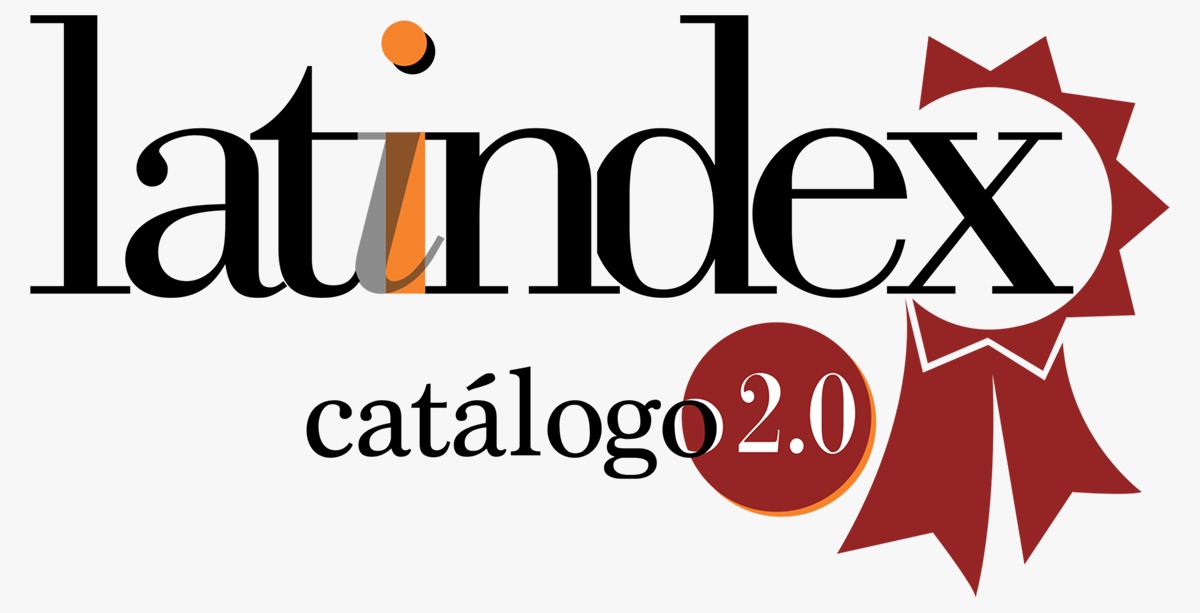Discrimination and digital citizenship in postgraduate and specialization environments: A systematic review (2020-2023)
DOI:
https://doi.org/10.47865/igob.vol6.n24.2023.314Keywords:
Digital citizenship, discrimination, Postgraduate coursesAbstract
This study aims to illuminate the academic landscape pertaining to digital citizenship and discrimination within postgraduate and specialized educational settings, aspiring to decipher the inherent dynamics and suggest trajectories of reflection and action to mitigate the identified disparities. Employing a systematic review methodology through the PRISMA method, a variety of studies from the ERIC and SCOPUS databases were analyzed, revealing a tilt towards the exploration of Digital Citizenship in ERIC, while in SCOPUS, the majority of studies leaned towards Discrimination. Digital Citizenship emerges as a crucial theme, showcasing how technology and the internet modulate civic participation and participatory democracy, whereas Discrimination is primarily examined from a social and educational perspective. The findings exhibit a trend towards evaluating Digital Citizenship as a tool to promote participatory democracy and to understand and address Discrimination in educational settings. It is suggested that these results can be theoretically addressed in studies grounded in the educational reality, nourishing the research lines that are suitable for generating significant changes aimed at the inclusion of vulnerable populations.
Downloads
References
Abdul Mutakabbir, J. C., Arya, V., & Butler, L. (2022). Acknowledging the intersection of gender inequity and racism: Identifying a path forward in pharmacy. American Journal of HealthSystem Pharmacy, 79(8), 696 700. https://doi.org/10.1093/ajhp/zxab461
Brown, A., Bonneville, G., & Glaze, S. (2022). Nevertheless, they persisted: how women experience gender based discrimination during postgraduate surgical training. Journal of Surgical Education, 78(1), 17 34. https://doi.org/10.1016/j.jsurg.2020.06.027
Calzada, I.(2022), Emerging Digital Citizenship Regimes: Pandemic, Algorithmic, Liquid, Metropolitan, and Stateless Citizenships. Citizenship Studies, 25(6 8). https://doi.org/10.1080/13621025.2021.2012312
Calzada, I., & Bustard, J. R. (2023). The dilemmas around digital citizenship in a post Brexit and post pandemic Northern Ireland: towards an algorithmic nation?. Citizenship Studies, 27(2), 271 292. https://doi.org/10.1080/13621025.2022.2026565
Ceia, V., Nothwehr, B., & Wagner, L. (2021). Gender and Technology: A rights based and intersectional analysis of key trends. http://dx.doi.org/10.21201/2021.7598
Chen, L. L., Mirpuri, S., Rao, N., & Law, N. (2021). Conceptualization and measurement of digital citizenship across disciplines. Educational Research Review, 33, 100379. https://doi.org/10.1016/j.edurev.2021.100379
Chen, Z. (2023). Ethics and discrimination in artificial intelligence enabled recruitment practices.
Humanities and Social Sciences Communications, 10(1), 1 12. https://doi.org/10.1057/s41599 023 02079 x
Choi, M., & Cristol, D. (2021). Digital citizenship with intersectionality lens: Towards participatory democracy driven digital citizenship education. Theory into practice, 60(4), 361 370. https://doi.org/10.1080/00405841.2021.1987094
Choi, M., Glassman, M., & Cristol, D. (2017). What it means to be a citizen in the internet age: Development of a reliable and valid digital citizenship scale. Computers & education, 107, 100 112. https://doi.org/10.1016/j.compedu.2017.01.002
Claro, M., Santana, L. E., Alfaro, A., & Franco, R. (2021). Ciudadanía digital en América Latina: revisión conceptual de iniciativas. https://hdl.handle.net/11362/47356
De Marco, S. (2009). Ciudadanía digital. Una introducción a un nuevo concepto de ciudadano. RES. Revista Española de Sociología, (11), 133 135.
Deganis, I., Haghian, P. Z., Tagashira, M., & Alberti, A. (2021). Leveraging digital technologies for social inclusion. United Nations Department of Economic and Social Affairs. https://social.desa.un.org/sites/default/files/migrated/22/2021/02/PB_92 1.pdf
Gastelú, C. A. T., Cordero Guzmán, D. M., Ortiz, J. L. S., & Alvarado, A. M. (2019). Influencia de factores sobre la manifestación de la ciudadanía digital. Revista Prisma Social, (26), 2749. https://revistaprismasocial.es/article/view/3099
Henry, N., Vasil, S., & Witt, A. (2022). Digital citizenship in a global society: a feminist approach.
Feminist Media Studies, 22(8), 1972 1989. https://doi.org/10.1080/14680777.2021.1937269
Lozano Díaz, A., & Fernández Prados, J. S. (2019). Hacia una educación para la ciudadanía digital crítica y activa en la universidad. RELATEC: revista latinoamericana de tecnología educativa. http://dx.medra.org/10.17398/1695 288X.18.1.175
Nzinga, S. M. (2020). Lean semesters: How higher education reproduces inequity. Johns Hopkins University Press.
Palaz, T., Kilcan, B., & Çepni, O. (2022). Science Mapping Research on Digital Citizenship Research in Education. Participatory Educational Research, 9(6), 248 267. http://dx.doi.org/10.17275/per.22.138.9.6
Palmirani, M., & Sapienza, S. (2021). La Mediazione Digitale e nuove forme tecnologiche di discriminazione. NOTIZIE DI POLITEIA, 144, 73 90. https://hdl.handle.net/11585/842774
Pangrazio, L., & Sefton Green, J. (2021). Digital rights, digital citizenship and digital literacy: What’s the difference?. NAER: Journal of New Approaches in Educational Research, 10(1), 15 27. https://doi.org/10.7821/naer.2021.1.616
Rashid, A. T. (2017). Digital inclusion and social inequality: Gender differences in ICT access and use in five developing countries. Gender, Technology and Development, 20(3), 306 332. https://doi.org/10.1177/0971852416660651
Salomé Resurrección, L. (2019). A propósito del concepto «discriminación estructural». Una mirada crítica de la visión liberal tradicional de la discriminación. Libro homenaje del área de derecho constitucional por los 100 años de la Facultad de Derecho de la Pontificia Universidad Católica del Perú. http://repositorio.pucp.edu.pe/index/handle/123456789/169016
Shi, G., Chan, K. K., & Lin, X. F. (2023). A systematic review of digital citizenship empirical studies for practitioners. Education and Information Technologies, 28(4), 3953 3975. https://doi.org/10.1007/s10639 022 11383 z
Sierra, F. (2013). Ciudadanía, Tecnología y Cultura. Nodos conceptuales para pensar la nueva mediación digital. Gedisa
Solazzi, M. (2023). La nueva expresión de la estratificación social del siglo XXI: brecha digital y discriminación tecnológica una paradoja de la sociedad de la información y del conocimiento. Encrucijada revista electrónica del Centro de Estudios en Administración Pública, (45), 45 67.
Tomasello, F. (2023). From industrial to digital citizenship: rethinking social rights in cyberspace. Theory and society, 52(3), 463 486. https://doi.org/10.1007/s11186 022 09480 6
VanLandingham, H., Ellison, R. L., Laique, A., Cladek, A., Khan, H., Gonzalez, C., & Dunn, M. R. (2022). A scoping review of stereotype threat for BIPOC: Cognitive effects and intervention strategies for the field of neuropsychology. The Clinical Neuropsychologist, 36(2), 503 522. https://doi.org/10.1080/13854046.2021.1947388
Whitehead, M. A., Foste, Z., Duran, A., Tevis, T., & Cabrera, N. L. (2021). Disrupting the big lie: Higher education and whitelash in a post/colorblind era. Education Sciences, 11(9), 486. https://doi.org/10.3390/educsci11090486
Yuce, T. K., Turner, P. L., Glass, C., Hoyt, D. B., Nasca, T., Bilimoria, K. Y., & Hu, Y. Y. (2020). National evaluation of racial/ethnic discrimination in US surgical residency programs. JAMA surgery, 155(6), 526 528.
Downloads
Published
How to Cite
Issue
Section
License

This work is licensed under a Creative Commons Attribution-NonCommercial-ShareAlike 4.0 International License.
Esta obra está bajo una licencia internacional Creative Commons Atribución-NoComercial-CompartirIgual 4.0.
















